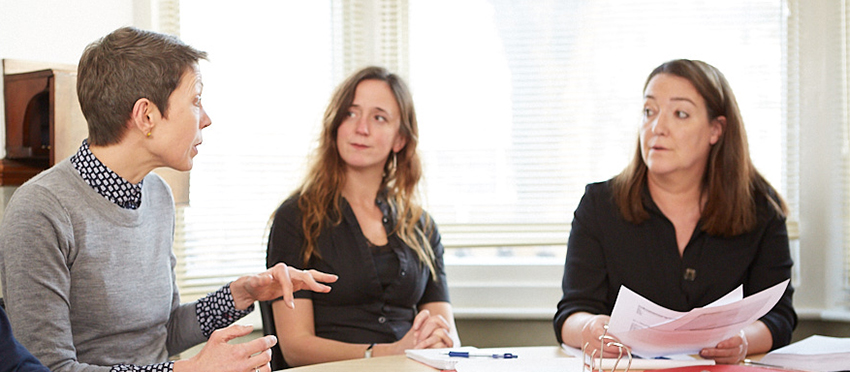Case Study: Securing a Vulnerable Client’s entitlement to Section 117 Aftercare Services

How Clare English, expert Community Care Lawyer based in our Brighton office, assisted a Professional Deputy to secure her vulnerable client’s ongoing entitlement to Section 117 aftercare services, and stopped him being unlawfully charged for his mental health aftercare support.
The situation
In June 2018, Kate was appointed as Professional Deputy (Property and Finance) to her client Tony, now 57 years old. He has Down’s syndrome, learning disabilities, type II diabetes and a history of psychosis.
Until 2007, Tony had lived at home with his parents in the north of England. He was not known to Social Services because his parents provided all of his day to day support. Tony’s father died and his mother moved into residential care at around the same time. Tony remained in his parents’ home but could not manage on his own. Social Services received a safeguarding alert that Tony was neglecting himself and living in unsanitary conditions. Tony was removed from his home and taken to an Assessment and Treatment Unit under s3 Mental Health Act (MHA) 1983.
Tony spent seven months at the unit before moving back home with a package of social care. He attended a day centre on four days each week and had three visits per day from a carer on the other days of the week.
Despite the care and support package, Tony’s home fell into a very poor state of repair with damp and mould throughout. The damp was made worse by Tony’s obsessional fixation with mopping the property several times a day, using excessive amounts of water. The care arrangements broke down and Tony was again admitted to psychiatric hospital. Attempts were made to move Tony back home again but trials of care at home broke down because the care agency could not manage his needs.
Social Services arranged a best interests meeting which decided that Tony should move to a supported living placement. The cost of the placement was funded by Social Services under their s117 Mental Health Act aftercare duties. Tony was eligible for Section 117 fully funded aftercare because he had been detained under s3 MHA 1983. The placement worked very well for Tony, although he still required a great deal of care and support.
A year after Tony moved to the placement, Health and Social Services held a Review meeting which concluded that Tony no longer met the criteria for mental health aftercare and that he should be discharged from the s117 aftercare register. Tony received a letter after the s117 funding was withdrawn, telling him that he would require a social care means tested financial assessment. Tony was required to self-fund the cost of his care at more than £1300 per week, from the sale proceeds of his parents’ modest property.
What Martin Searle Solicitors did
Kate sought Clare’s advice about her options as Deputy to challenge the decision that Tony no longer met the criteria for s117 aftercare and the prospects of success at appeal.
Clare advised Kate that although there is no “lifetime right” to a s117 aftercare duty, she believed that the decision in Tony’s case was unlawful. Clare explained that a person cannot be discharged from the aftercare provisions simply because Health or Social Services wants to save money and to be able to charge the person for their care. Clare had identified that there was no clinical evidence to demonstrate that Tony no longer required mental health aftercare support.
Clare advised Kate to obtain Tony’s full medical and social care records back to the date of his first admission to psychiatric hospital. Clare analysed the records and found extensive evidence that Tony had ongoing need for mental health aftercare and support. It was evident that Tony’s self-neglect was clearly linked to his mental health needs that had resulted in his original admission to hospital under section 3.
Clare lodged an appeal against the decision to discharge Tony from section 117 aftercare support. She argued that there had been a failure to consider the appropriate factors, in particular the clear evidential link between the self-neglect and behaviours Tony exhibited when he was detained; the self-neglect which resulted in his removal from his home into the supported living placement; and the ongoing problems at his current placement resulting from his obsessions.
The result
Clare represented Kate and Tony at the Social Services section 117 appeal board meeting. The appeal board were impressed by Clare’s submissions and adjourned to gather evidence from Health and Social Services. The appeal board later upheld Clare’s appeal for Kate and Tony, and his ongoing eligibility for s117 aftercare duties was restored. Tony was refunded around £65,000 for care costs he should not have paid, plus ongoing funding of £1,400 per week.
For expert advice about Section 117 Aftercare, contact our Community Care Law team on 01273 609911, or email info@ms-solicitors.co.uk.


